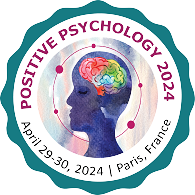
John A. Johnson
Professor
Pennsylvania State University
USA
Biography
John A. Johnson, professor emeritus of psychology at the Pennsylvania State University, joined the faculty in 1981, immediately after earning his Ph.D. from the Johns Hopkins University. During his tenure there he won several teaching awards as he taught over 20 different courses, including three new courses he authored or coauthored: evolutionary psychology, personality psychology, and positive psychology. He also created online versions of personality psychology and positive psychology for Penn State's World Campus. He spent the 1990-91 year as visiting professor and Alexander von Humboldt-Stiftung Research Fellow at the University of Bielefeld, Germany. He has authored over 60 publications on the personality and evolutionary psychology of moral and educational development, career choice, and work performance. He has served on the editorial boards of the journals Assessment, Evolutionary Review, Journal of Personality and Social Psychology, Journal for Research in Personality, and Social Psychological & Personality Science. Dr. Johnson is a recognized expert on computerized psychological measurement.
Research Interest
My research has been aimed at improving the validity of self-report personality tests. I am especially interested in methods for improving the validity and pragmatic utility of computer-generated, narrative personality reports for single individuals. In addition to my research aimed at improving personality test validity, I have conducted research in several specific content areas. These include (1) the impact of personality on educational development, vocational choice, and job performance; (2) personality characteristics related to empathy, deviance, and creativity; (3) the relationship between personality and human evolution; and (4) psychological factors influencing the conduct of scientific research.

